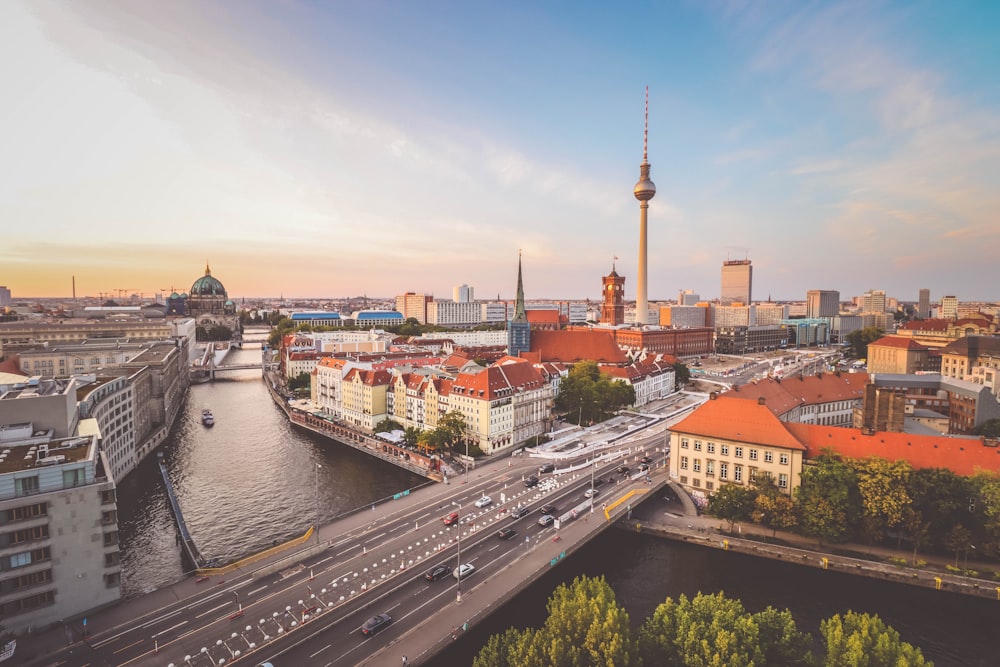
The Startup Ecosystem of Germany
Germany has 45 cities in the top 1000 and has a vibrant startup scene that ranks 7th within the competitive global top 10.
COUNTRY RANKING
Germany’s startup scene remains stable in 2024 on the 7th position, having gained 5 more cities in the global top 1000.
Population
Million
Regional Ranking
In Western Europe
Global Ranking
Worldwide
Ecosystem
Startup Ecosystem Overview

The German startup ecosystem is characterized by the country’s federal structure, which gives more power and independence to German states and fosters the development of a non-centric startup ecosystem. This has the advantage of building several leading European ecosystems in the country. On the flip side, this also prevents the creation of a massive global hub compared to more centralized countries such as the UK and France. Germany is now facing economic challenges created by the war in Ukraine, which has cost Germany about 2.5% of its GDP, resulting in an economic downturn.
Germany’s strength and diversity are also reflected in the quality of seed startup ecosystems. Organizations such as the Berlin Partner, City of Cologne, StartHub Hessen, Hamburg Invest, Hamburg.de, Munich Startup, Frankfurt Economic Development GmbH, and Gründerallianz Ruhr are actively involved in developing local startup ecosystems. Moreover, private sector initiatives like ruhrHUB, de:hub, and TechQuatier bring together startup ecosystem stakeholders from different hubs in the country and facilitate knowledge exchange. The country also enjoys increased international attention on its entrepreneurial ecosystem with events such as Bits & Pretzels.
In terms of funding, the public sector offers a diversified support system for startups. The first startup strategy of the federal government was approved in 2022, and the government pledged to allocate €30 billion to its startup sector through 2030. The strategy also includes reducing red tape, supporting women entrepreneurs, boosting creative industries, rewarding innovation, and fostering entrepreneurship in schools. There are plenty of other incentives, such as High-Tech Gründerfonds (HTGF) for seed investment, and BayTOU which supports SMEs in developing their technology concepts via grants. German-based entrepreneurs also have the advantage of creating solutions for their local economy, which is much bigger than any other country in Europe, while also leveraging Germany’s EU leadership position to expand into other markets. While there is still work to be done in reducing red tape and simplifying tax laws, along with tackling the challenges of high labor costs and stringent employee protections, the German startup ecosystem holds tremendous potential. With its skilled workforce and ongoing plans to improve the business environment, Germany is well-positioned to unlock this potential and offer startup founders a supportive ecosystem.
Startups
Germany Top Startup Industries
2343 startups
619 startups
426 startups
Unlock with pro
Ecosystem HealthCheck
Germany Ecosystem Health Check
The health check tables allow you to look at the performance Germany has in each of the parameters that are part of StartupBlink's ranking algorithm. There are five tables, corresponding to the three subscores, the subscore analysis and industry ana...
- Overperformance
- Performance equal to global ranking
- Underperformance
ECOSYSTEM
Browse the startup ecosystem database of Germany
Become our Germany Ecosystem Partner
Startup Ecosystem Charts
Startup Funding in Germany2017 - 2024
Startup Funding in Germany 2017 - 2024
From 2022 to 2023, startup funding in Germany has decreased by 20.59%. During this period, the number of deals in Germany has decreased by 32.74%. Since 2017, total startup funding in Germany exceeded US$ $98.64B.
Average Funding in 2023
$13.25M
Funding in 2023
$12.61B
Deals in 2023
951
USD
Amount of Funding (USD)
Number of Deals
Ecosystem
The Startup Ecosystem in Germany
Global Rank
Germany is ranked within the top 10 startup ecosystems globally.
Top Industries
Germany’s startup scene is best represented in Software & Data, Ecommerce & Retail, and in Fintech.
BLOG
Recent Posts

Wed Apr 02 2025
Corporate Startup Activity Index 2025
For the first time ever, 372 corporations across 30 countries, 11 major industries, and 10 sub-industries have been ranked based on how actively they engage with startups. StartupBlink’s Corporate Startup Activity Index is the world’s first benchmark for corporate startup engagement — powered by real data, global partnerships with top corporations, governments and data sources, […]

Thu Mar 06 2025
The Impact of Government Support on Startups
A robust startup ecosystem creates a sense of community that brings entrepreneurs together and helps them feel less isolated. It gives them access to mentors, advisors, fellow entrepreneurs, and talents. The foundation of such an ecosystem largely relies on government support. Good policies create a fair and supportive environment that helps startups grow. Bad policies […]

Thu Feb 20 2025
Learning from Bulgaria: Stakeholder Engagement in Startup Ecosystems
In this episode of the Startup Ecosystem Podcast, we’re traveling back in time by revisiting an old recording to explore the state of Bulgaria’s startup ecosystem in 2022. This episode features an interview by Eli David Rokah, CEO of StartupBlink, with Momchil Vassilev, the Managing Director of Endeavor Bulgaria, discussing how different stakeholders’ engagement in […]


